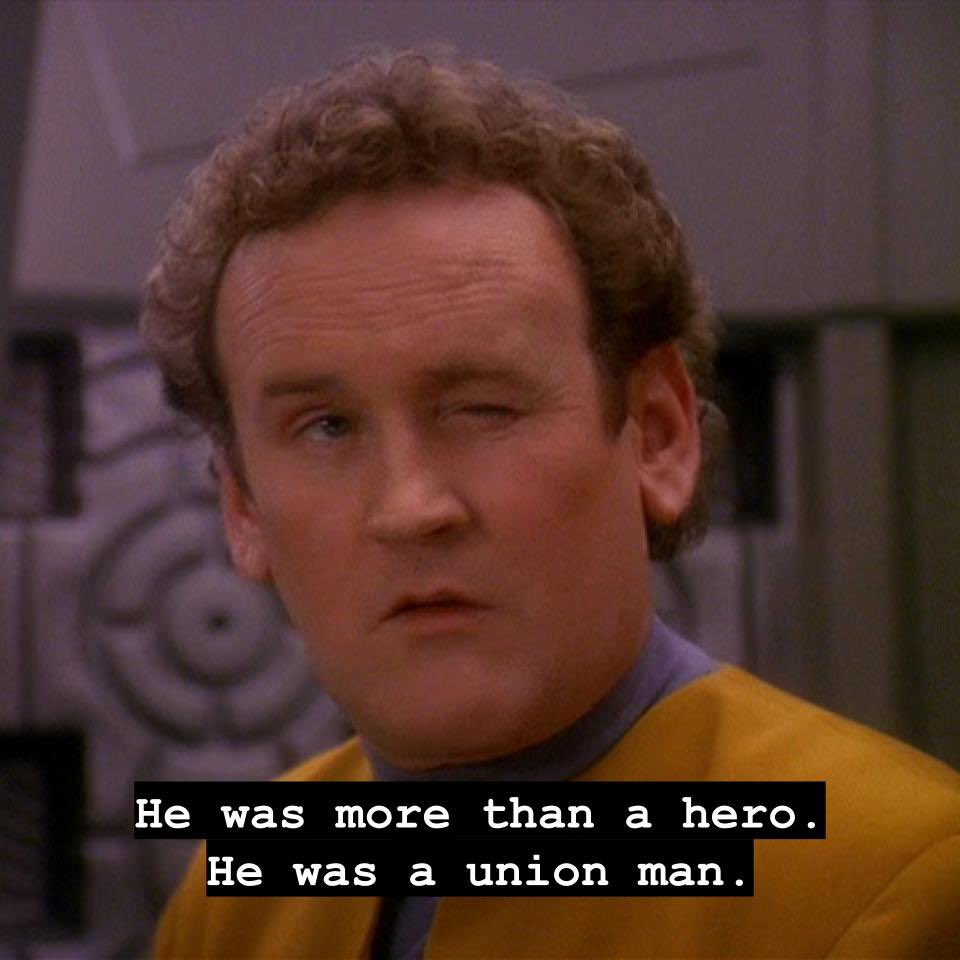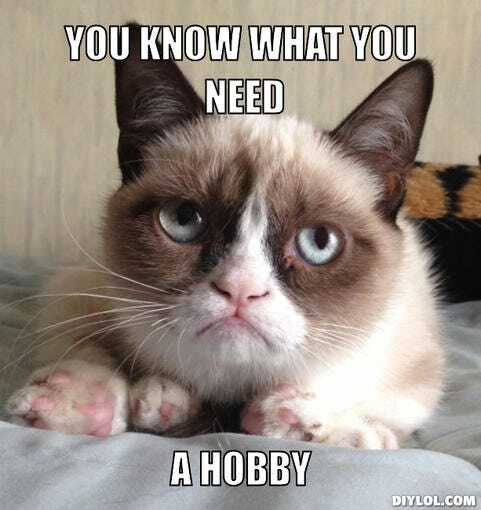Three possibilities come to mind:
Is there an evolutionary purpose?
Does it arise as a consequence of our mental activities, a sort of side effect of our thinking?
Is it given a priori (something we have to think in order to think at all)?
I can’t think of any good reason why we would have such an illusion.
I enjoy either the free will or the illusion thereof not to torment myself with such unanswerable questions!
Gooooood choice
If I found out that I don’t have free will, I would start trying to gain it back immediately.
What if you found out that free will is an inherently flawed concept and therefore impossible to conclusively obtain
if you found out that free will is an inherently flawed concept
I also cannot imagine finding out that the hole in my ass is bigger than I am.
Then I have some bad news for you, about calculating the interior volume of a cylinder. You’ve got a lot of hole coiled up inside you
What if you never had it and never can have it because its not a havable thing
Pot kettle black
Assuming we don’t have free will, why do we have the illusion that we do?
You experience the world through your senses.
What sense that your body has would you expect to give your brain a different set of inputs if your brain’s actions were not deterministic, not set by the laws of physics? How would you expect it to feel different?
You wouldn’t expect to feel like some invisible force is in control of your limbs, which I think is perhaps what some people intuitively expect if someone says that their actions are pre-determined.
It’s not talking about anything that your brain can sense; it’s talking about how your brain works.
Yeah, this is it.
And to take a slightly different tack, if the biochemical and electrical activity in your brain were not deterministic, how would you ever know? It’s one thing to believe that you made a decision on your own “Free Will”, but how could you possibly rewind the entire universe (or at least some sufficiently small portion of it), including your brain’s exact atomic state, and re-run the experiment to know for sure? At that point, what would “Free Will” even mean?
There are many thing my body does which I’m aware of, but that I don’t will, and others that I have some control over, i.e., my will appears to play a role, but not the only role.
I don’t think it creates any kind of contradiction to suggest that, hypothetically, there could be more (or less) of either of those types of things, without my perceiving an invisible (external) force of some kind to be involved. After all, I don’t ascribe my heartbeat to an external force, but I am aware that I don’t will it.
After all, I don’t ascribe my heartbeat to an external force, but I am aware that I don’t will it.
No, but you have the ability to sense your heartbeat, so you can tell that it’s there.
You don’t have the ability to sense electromagnetic emissions in the X-ray frequency range, so you can’t tell that they’re there. You wouldn’t know if X-rays of a given intensity were present at a given moment. It’s like asking “why is there the illusion that there are no X-rays” when you wouldn’t expect to feel differently regardless of their presence or non-presence.
Confabulation.
Look at split-brain patients: divide the corpus callosum down the middle, and you effectively have two separate brains that don’t communicate. Tell the half without the speech centre to perform some random task, then ask the other one why they did that - and they will flat-out make up some plausible sounding reason.
And the thing is, they haven’t the slightest idea that it isn’t true. To them, it feels exactly like freely choosing to do it, for those made up reasons.
Bits of our brains make us do stuff for their own reasons, and we just make shit up to explain it after the fact. We invent the memory of choosing, about a quarter of a second after we’ve primed our muscles to carry out the choice.
I think a chunk of this comes down to our need to model the thoughts of others (incredibly useful for social animals) - we make everyone out to be these monolithic executive units so that we can predict their actions, and we make ourselves out to be the same so we can slot ourselves into that same reasoning.
Also it would be a bit fucking terrifying to just constantly get surprised by your own actions, blown around like a leaf on the wind without a clue what’s going on, so I think another chunk of it is just larping this “I” person who has a coherent narrative behind it all, to protect your own sanity.
I forget which philosopher said this but he said something along the lines of if you have the desire and the capacity for an action you do, then deterministic or not, you chose that action. If the tide pulls me where I was already swimming, I still chose to swim there, even if some other force took me half of the way.
But where does your desire and capacity to do that thing come from? It arises from the physical arrangement of neurons/hormones/etc. in your brain and body
Why are you separating “you” from the choices your physical self is making?
I’m not. Did you reply to the correct comment?
Simple: We cannot predict the future. If you don’t know what’s going to happen nor whether it is being controlled, you do not know whether your actions are predetermined. Every movement you make might be the result of universal programming. What I’m typing, have sent, and you are reading might be the sequence of events that was always supposed to happen.
Free will is, IMO, as unknowable as whether an almighty being exists. That “almighty being” might have created this existence, but might also exist in its own realm that was created by another “almighty being”. The chain might be infinite and it might not be. Asking these questions is like asking “can we reach infinity”.
You’re conscious of the decisions you make. Sure they’re the result of a million different variables, chemicles, memories, and predetermined traits, but some of that is active. You are making the choice. Whether you could have made a different one or not doesn’t affect what the choice feels like
A lack of free will intuitively conflicts with the experience of entropy. It claims a fantasy of order in the midst of experiential chaos. It is a sophist religion of chaos with no evidence; a belief system.
This is the kind of pointless shit that I think of when I smoke too much. If you have a pipe in your hand, SIT IT DOWN 😜
No, now I’m old and don’t smoke anymore, but my mind still does this stuff to me anyway.
Yes, there’s an evolutionary purpose for the concept of purpose. If you believe you can do something and show some initiative then you’re more likely to get it. The early bird gets the worm, and the bird that anticipated the worm is the early bird. This is true both for humans and cells in a petri dish.
That’s a very large assumption. The simplest explanation is that we feel like we have free will because we do. Quantum mechanics suggests some major challenges to determinism, and the best arguments to restore it require a very unsatisfying amount of magical thinking.
Why are we assuming we don’t have free will? We do. Its not total freedom, our freedom is contingent on existing circumstances, but hard determinism is easily disprovable.
The idea that there is no free will is a mind fuck that keeps you from questioning your reality. You might as well ask, “assuming the earth is flat, why does the stick disappear on the horizon?”
This is a nice and brief video that I’ve found persuasive. https://youtu.be/eELfSwqJNKU
We don’t have a free will.
We do have a free won’t.
Our brains cannot store all the experiences we ever make. It rather only stores ‘hunches’ (via many weightings of neurons). In particular, it also mixes multiple experiences together to reinforce such hunches.
This means that despite there being causal reasons why you might e.g. feel uneasy around big dogs, your brain will likely only reproduce a hunch, a gut feeling of fear.
And then because you don’t remember the concrete causal reasons, it feels like a decision to follow your hunch to get the hell out of there.
This feeling of making a decision is made even stronger, because there isn’t just the big-dog-bad-hunch, but also the don’t-show-fear-to-big-dog-hunch and the I’m-in-a-social-situation-and-it-would-be-rude-to-leave-hunch and many others.There is just an insane amount of past experiences and present sensory input, which makes it impossible to trace back why you would decide a certain way. This gives the illusion of there being no reasons, of free will.








